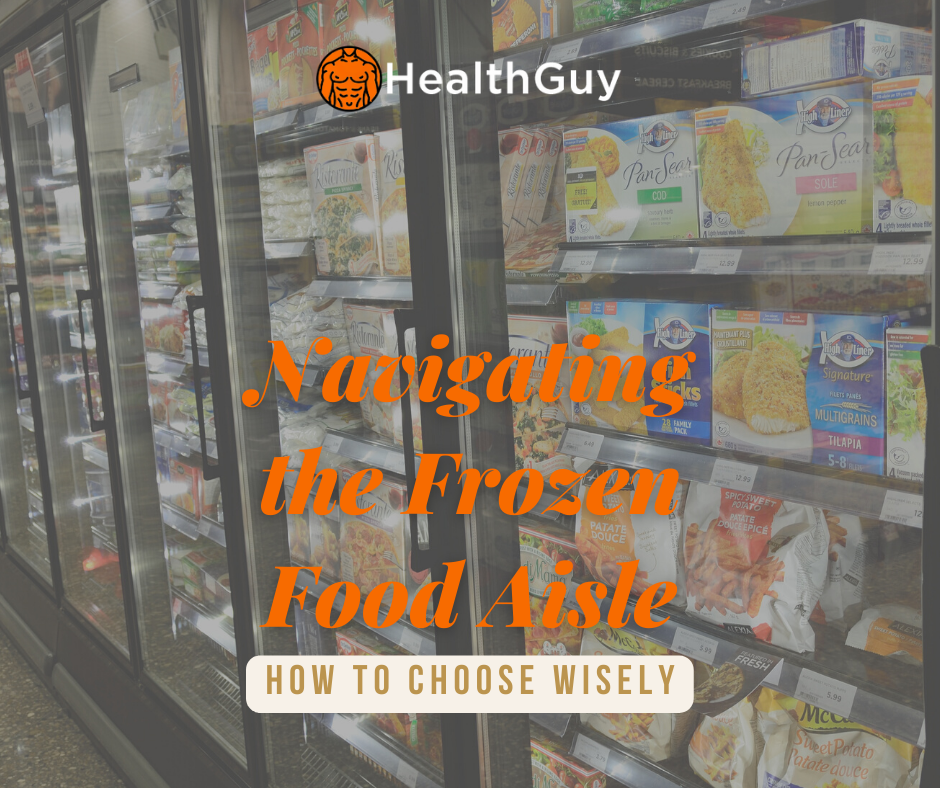
Navigating the Frozen Food Aisle: How to Choose Wisely
Frozen food has become a popular choice in today’s fast-paced lifestyle, offering a quick and easy solution for meals. This article aims to provide an in-depth understanding of frozen food and its role in a healthy and convenient diet.
What is frozen food?
Frozen food is simply food that has been frozen to preserve its freshness and flavour. It includes fruits, vegetables, meats, seafood, and prepared meals. Freezing food is a popular preservation method as it slows down the growth of bacteria and other microorganisms that can cause food spoilage.
Advantages of frozen food:
- Convenience: Frozen meals can be quickly heated up in the microwave or oven, making them a great option for busy families or individuals who don’t have time to cook from scratch. Many frozen meals are also portion-controlled, which can be helpful for those trying to manage their calorie intake.
- Cost-effective: Buying frozen fruits and vegetables can be cheaper than buying fresh, especially if they’re out of season or not readily available in your area. Frozen meats and seafood can also be less expensive than fresh, making it easier to enjoy these protein sources on a budget.
- Long shelf life: Frozen food can last for months in the freezer, making it a great option for those who want to stock up on groceries or meal prep for the week ahead.
- Nutrient-dense: Frozen food is often picked and frozen at its peak ripeness, resulting in a more nutrient-dense product than fresh food that has been sitting on a shelf for days or weeks.
Disadvantages of frozen food:
- High in sodium: Many frozen meals and snacks can be high in sodium, which can contribute to high blood pressure and other health issues if consumed in excess.
- Added preservatives: To maintain freshness and quality, many frozen foods contain added preservatives and other ingredients that may not be the healthiest option.
- Can be lacking in taste and texture: While some frozen meals and snacks can be tasty and satisfying, others may lack the taste and texture of fresh food.
- Environmental impact: Frozen food requires energy to keep it frozen, which can contribute to greenhouse gas emissions and other environmental concerns.
Is frozen food linked to cancer?
While there is no conclusive evidence to suggest that frozen food consumption is directly linked to an increased risk of cancer, some studies have suggested that certain types of processed foods, including some frozen meals and snacks, may contain harmful additives and preservatives that could potentially increase the risk of cancer. One of the primary concerns with frozen food and cancer is the use of sodium nitrate and nitrite as preservatives, which have been linked to an increased risk of colorectal cancer.
Tips for choosing and handling frozen food:
- Opt for items that are lower in sodium and free of added preservatives.
- Read labels carefully to check for added sugars and other unhealthy ingredients.
- Always store frozen food in the freezer and never let it sit at room temperature for too long.
- Thawing frozen food in the refrigerator or microwave, rather than leaving it out on the counter.
- Always cook frozen meats, seafood, and prepared meals to the recommended temperature to ensure they’re safe to eat.
In conclusion, frozen food can be a convenient and cost-effective option for busy families and individuals. However, it’s important to be aware of the potential drawbacks and to choose wisely. Opt for healthy and nutritious options, and handle frozen food properly to ensure its safety and quality. Incorporating fresh, whole foods into your diet can also help ensure a balanced and nutritious diet.
